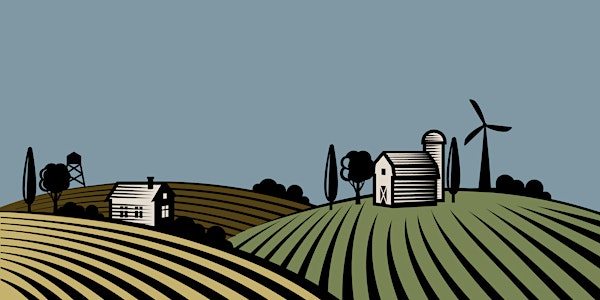
Rural Conversation No. 2: ‘Enhancing social cohesion among communities in rural Ireland’
Date and time
Location
Muirhevna Building, Dundalk Institute of Technology
M111/112/113 Dundalk IrelandDescription
‘Enhancing social cohesion among communities in rural Ireland’ is the second in a series of three Rural Conversations.
28 February, 11:00-13:30 in the Muirhevna Building, Dundalk Institute of Technology
Registration with tea/coffee from 10:15 a.m.
Networking lunch at 13:30
This roundtable feedback event will elicit stakeholders' contributions on enhancing social cohesion among communities in rural Ireland. The outputs from the event will help to inform the development of future Government policy on rural development.
The purpose of this second roundtable event is for stakeholders to contemplate ways of enhancing social cohesion among communities in rural Ireland. Stakeholders will be seated at a number of roundtables and will discuss and formulate recommendations on three questions. During the feedback sessions, stakeholders' recommendations will be fed back to the room and recorded in a rapporteur's report and audio recorded for podcasting.
Social cohesion can be identified as the bonds that link rural dwellers to one another and to the community as a whole. It includes all community members (e.g. age, race, religion, gender, sexual orientation, family size, ethnicity, income, and education). A highly cohesive community exhibits equitable member inclusion and community collaboration in pursuit of collective social and economic prosperity. Social cohesion barriers include member isolation, mistrust, fear of crime, insufficient support structures and a lack of communal spaces.
Feedback from roundtables will be sought under these questions:
-
What are the key positive and negative factors impacting social cohesion in rural communities?
-
Which cohorts within rural communities are most affected by a lack of cohesion among and between community segments (e.g. youth, elderly, new citizens, etc.), and how are they impacted?
-
What actions need to be taken in order to enhance cohesion and strengthen social support structures for all rural dwellers?
The rapporteur's report of this event may include names of attendees and their affiliations. The roundtable feedback by the chairs at each roundtable (not the full discussions at the roundtables) will be audio recorded. There may also may be a photographer at this event. Please read the attached Transparency and Consent Information document in relation to all of those items.
It is important that there is a broad cross-section of representatives from the stakeholder community providing the feedback of recommendations. Therefore, we may need to review registrations to ensure broad representation of stakeholders. Should we find that there is an imbalance in the stakeholders who have registered we may need to adjust for that.
The first event in this series took place on 8 November 2018 in NUIG and it dealt with 'Delivering economic development in rural Ireland'. The event including the roundtable feedback was recorded and is available on our website.
The final stakeholder event in the series will focus on sustainable rural communities and will take place in Waterford Institute of Technology on 4 April 2019.
This complete series is supported by the Department of Rural and Community Development, and this conversation is hosted by DkIT.

Organised by
The Royal Irish Academy, the academy for the sciences, humanities and social sciences for the whole of Ireland will vigorously promote excellence in scholarship, recognise achievements in learning, direct research programmes and undertake its own research projects, particularly in areas relating to Ireland and its heritage.
Click here to read the Academy's Data Protection Policies
The Royal Irish Academy aims to be accessible to all visitors, however due to the building’s status as a protected structure and our location, we are limited in the alterations that can be made. Click here for further details in relation to accessibility at the Royal Irish Academy.
Click here to ready our Customer Charter and our Events and Admission Policy